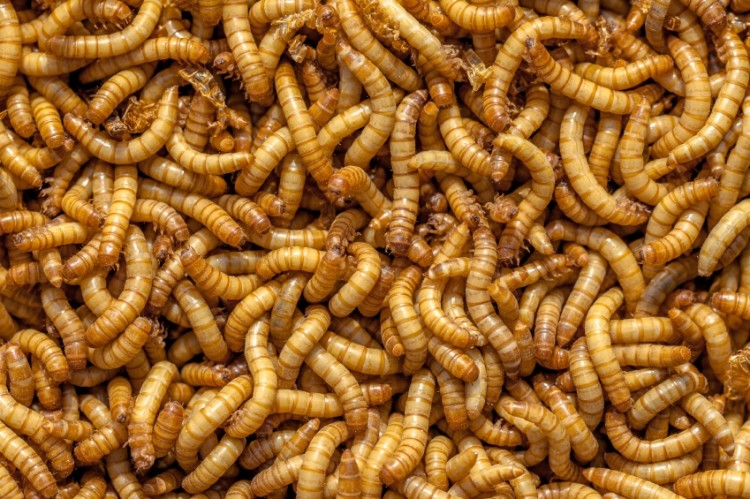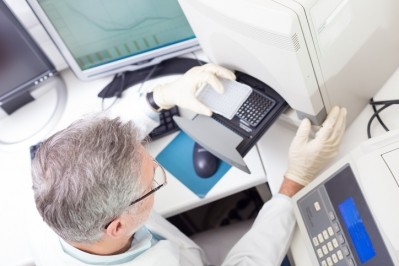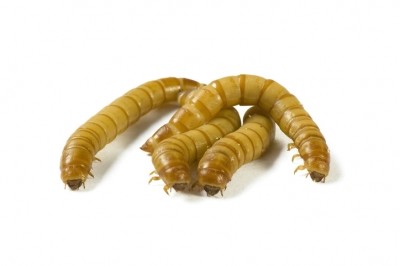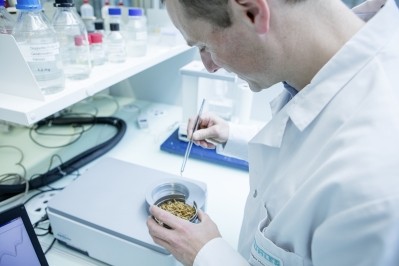IPIFF says EFSA conclusions pave the way for regulatory changes
'An important stepping stone in furthering our understanding of the potential of insects as a protein source' - long awaited EFSA opinion out

However, Tarique Arsiwalla, vice president of the International Platform of Insects for Food and Feed (IPIFF), a consortium of insect-producing companies from the Netherlands, France, Germany and South Africa amongst others, said the opinion paves the way for some necessary regulatory changes. He noted that while the European Food Safety Authority (EFSA) calls for further analysis it said it sees no immediate safety risk in the production and consumption of insects using existing plant based feed materials.
"IPIFF puts the safety of our food and feed first and advocates a step by step approach. Now that EFSA hasn’t found major safety indications for insect reared on 100% vegetable substrates, it is time to take the next steps: for the feed sector this means lifting the slaughterhouse amendment in the case of using insect proteins in aquaculture, for the food sector it means ensuring the novel food procedures are not more burdensome than necessary," he told FeedNavigator.
'Stepping stone’
And Elaine Fitches, coordinator of PROteINSECT, a €3m EU funded insect to feed project involving researchers in seven countries, said the opinion was “an important stepping stone in furthering our understanding of the potential of insects as a protein source.”
That group also welcomed EFSA’s findings that:
- when currently allowed feed materials are used to feed insects, the possible occurrence of any microbiological hazards are expected to be comparable to other sources of protein of animal origin and should not pose any additional risk compared to other feed
- the use of other (currently forbidden) substrates to feed insects destined for animal feed such as organic wastes (food waste and manures) must be specifically evaluated.
Dr Adrian Charlton, a member of the EFSA scientific panel and researcher with that same insect to feed initiative, said the opinion highlights the work still needed to be done to ensure robust safety and quality data is available for insect protein.
The opinion of the Scientific Committee of the European Food Safety Authority (EFSA) on the risks inherent in the use of insects in feed and food was delivered in the context of the policy the EC Directorate General for Health and Consumers (DG Sante) is developing on insect derived protein.
The Authority confirmed: “the specific production methods, the substrate used, the stage of harvest, the insect species, as well as the methods used for further processing will all have an impact on the possible presence of biological and chemical contaminants in insect food and feed products.”
The EFSA experts found there is lack of "consolidated data" relating to "the magnitude and frequency of managed feeding of insects to farm animals" and also noted a scant amount of published data on hazardous chemicals in reared insects. It also said studies on the occurrence of human and animal bacterial pathogens in insects processed for food and feed are scarce in the scientific literature.
‘Processing data 'lacking'
As part of a forum on EU policy set up DG Sante in February this year, EFSA’s Scientific Committee was briefed by the IPIFF on all aspects of large scale insect production.
Nevertheless EFSA's opinion noted: “Precise details of the processes used are difficult to obtain as these, combined with insect rearing practices, are the intellectual property of the manufacturing companies.”
The EFSA experts did report, however, that many methods for fractionating insects are conceivable and that this approach is increasingly common within the emerging insect production industry.
“Mechanical separation and solvent extraction is used for the production of fractionated insect products. An example of this may be the mechanical separation of large insoluble chitin particles from ground insects using water or steam extraction technologies. Within the same process line or otherwise, organic solvent extraction using for example hexane will allow the separation of fats/oils from protein.
More advanced technologies such as super critical fluid extraction using CO2 or microwave assisted accelerated solvent extraction are all feasible technologies for the large-scale production of protein and fat isolates. A major goal of the industry appears to be the development of solvent-free protein/fat extraction technologies,” concluded the opinion.
Further reaction
David Drew, managing director of South African insect to feed producer Agriprotein, also commented on the EFSA opinion.
He told FeedNavigator the assessment is “a step forward” as it is a “key part of the process” to enable DG Sante to take further legislative action.
“We are unsurprised that it [the opinion] recommends more research and [we] hope that, going forward, as well as the science, broad common sense is applied. Let’s unlock the technical issue that currently alters the natural feed cycle by allowing scarce dehydrated fish to be fed to farmed animals and not their natural feed, insects,” said Drew.
He said the individuals selected for the specialist review were outstanding in their fields:
“But I hope in the very near future, some interested parties will be asked to participate directly within these forums. IPIFF members have such a profound store of applied information that I feel we could contribute more robustly in discussions and framing outcomes, not just presenting capabilities. This is clearly hard given the importance of impartiality and non-partisan advice, but I do hope we will be asked to engage more meaningfully [in the future].”
Stunted EU market
Fitches told us recently that the EU insect protein market development is being stunted by the current legislative landscape.
“IPIFF say they are ready to go; they are already producing for the pet food industry and are lobbying to push the regulatory authorities forward,” she said in August on the release of the PROteINSECT’s Consensus Business Case Report.
That publication looked to provide an evidence base to support discussions as the regulatory process for assessing the use of insect protein in livestock and fish feed continue in Europe.
It gives an overview of the commercial insect rearing ventures that exist both within and outside Europe. European players include Protix Biosystems BV in the Netherlands, Spanish spin-out Bioflytech, Ynsect in France and Hermetia in Germany.
The EFSA opinion can be read here.
This article was amended on 9 October to reflect IPIFF's comments on the opinion.














